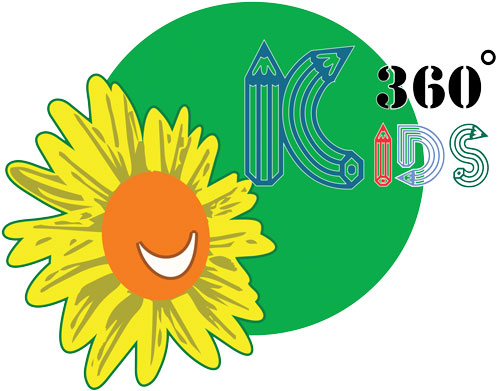The Role of Curiosity and Guidance
While children are naturally curious, curiosity alone isn’t sufficient for meaningful learning. The thoughtful guidance of teachers is crucial in facilitating inquiry-based learning. Teachers at 360° Kids Play School use inquiry-based learning to build on children’s spontaneous exploration and gradually guide them towards structured inquiry.
Skills for Inquiry-Based Learning
Inquiry-based learning involves various skills that children need to develop and use throughout their preschool years. These skills are integrated into engaging topics and ideas and into children’s ongoing play. Some skills require explicit teaching, such as:
- Using a Magnifier: Learning how to observe objects closely.
- Posing Questions: Formulating questions to guide investigations.
- Analyzing Data: Understanding and interpreting information collected.
- Using Graphic Organizers: Organizing thoughts and observations visually.
Other skills are reinforced through different types of activities and investigations, such as sorting and categorizing objects.
Teacher’s Role in Inquiry
Teachers play a crucial role in modeling the inquiry process and posing questions that encourage, support, and extend children’s learning. Examples of questions teachers might ask include:
- “What would happen if…?”
- “How would we find out?”
- “What are the places in our schoolyard where we might find worms?”
- “What ways can you use to get the water from one container to another?”
- “I wonder why your measurement is different from Vansh’s.”
Children’s Role in Inquiry
As children engage in inquiry-based learning, they begin to ask questions that lead to further exploration and investigation, such as:
- “How can this car go faster down the ramp?”
- “Where are the biggest puddles?”
- “How many legs does a spider have?”
- “What happens if I mix blue and red paint?”
Children also start to communicate their ideas and questions during experiments and investigations, describing materials used, identifying problems, and offering suggestions to peers. They learn to make predictions and draw conclusions, such as:
- “I think if I use a bigger block on the bottom, my tower won’t break. See, it worked! I used this big block and it didn’t fall over.”
- “I think when I mix these paints they will change color.”
- “I thought it would take six footsteps, but it took ten.”
Benefits of Inquiry-Based Learning
By integrating inquiry-based learning into our curriculum, 360° Kids Play School encourages children to develop critical thinking skills, creativity, and a deeper understanding of the world around them. This approach:
- Promotes Active Learning: Children are actively engaged in the learning process.
- Fosters Independence: Encourages children to take initiative and explore their interests.
- Enhances Problem-Solving Skills: Develops the ability to think critically and solve problems.
- Supports Language Development: Improves communication skills through discussion and questioning.
- Builds Confidence: Helps children gain confidence in their abilities to explore and discover.
Conclusion
At 360° Kids Play School, our inquiry-based learning approach nurtures children’s natural curiosity and guides them towards a structured and meaningful exploration of their environment. Through the thoughtful guidance of teachers and the integration of various skills into engaging activities, children develop a love for learning that lays a strong foundation for their future education.

